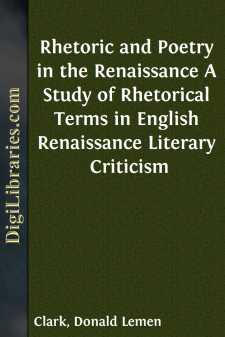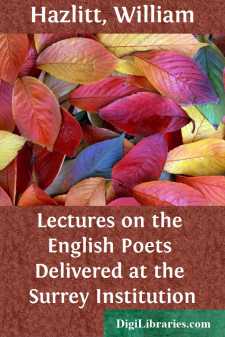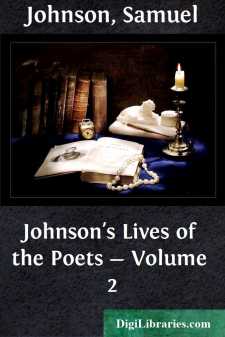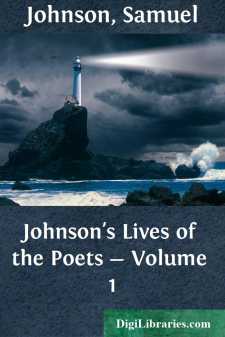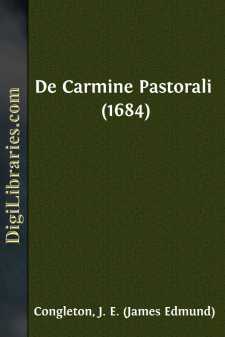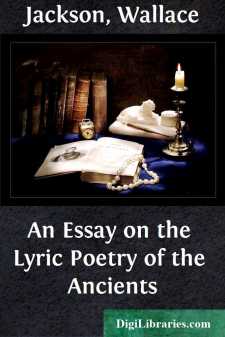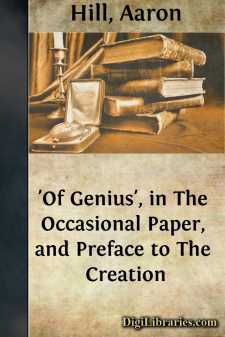Literary Criticism
- American 18
- Ancient and Classical 3
- Asian 1
- Australian & Oceanian 1
- Books & Reading 8
- Caribbean & Latin American 2
- Drama 2
- English, Irish, Scottish, Welsh 49
- European 7
- General 37
- Horror 1
- Humor 2
- Jewish 2
- Medieval 2
- Middle Eastern 3
- Poetry
- Renaissance 6
- Russian & Former Soviet Union 1
- Shakespeare 27
Poetry Books
Sort by:
Chapter IIntroductory By definition the renaissance was primarily a literary and scholarly movement derived from the literature of classical antiquity. Thus the historical, philosophical, pedagogical, and dramatic literatures of the renaissance cannot be accurately understood except in the light of the Greek and Roman authors whose writings inspired them. To this general rule the literary criticism of...
more...
by:
William Hazlitt
LECTURE I.—INTRODUCTORY ON POETRY IN GENERAL. The best general notion which I can give of poetry is, that it is the natural impression of any object or event, by its vividness exciting an involuntary movement of imagination and passion, and producing, by sympathy, a certain modulation of the voice, or sounds, expressing it. In treating of poetry, I shall speak first of the subject-matter of it, next...
more...
by:
Samuel Johnson
INTRODUCTION. This volume contains a record of twenty lives, of which only one—that of Edward Young—is treated at length. It completes our edition of Johnson's Lives of the Poets, from which a few only of the briefest and least important have been omitted. The eldest of the Poets here discussed were Samuel Garth, Charles Montague (Lord Halifax), and William King, who were born within the years...
more...
by:
Samuel Johnson
INTRODUCTION. Johnson's "Lives of the Poets" were written to serve as Introductions to a trade edition of the works of poets whom the booksellers selected for republication. Sometimes, therefore, they dealt briefly with men in whom the public at large has long ceased to be interested. Richard Savage would be of this number if Johnson's account of his life had not secured for him...
more...
The First Part. TO be as short as possible in my discourse upon the present Subject, I shall not touch upon the Excellency of Poetry in general; nor repeat those high Encomiums, (as that tis the most divine of all human Arts, and the like) which Plato in his Jone, Aristotele in his Poetica, and other Learned men have copiously insisted on: And this I do that I might more closely and briefly pursue my...
more...
by:
Wallace Jackson
INTRODUCTION John Ogilvie (1733-1813), Presbyterian divine and author, was one of a group of Scottish literary clergy and a fellow of the Edinburgh Royal Society. Chambers and Thomson print the following generous estimation of his work:Of all his books, there is not one which, as a whole, can be expected to please the general reader. Noble sentiments, brilliant conceptions, and poetic graces, may be...
more...
by:
Aaron Hill
INTRODUCTION The anonymous essay "Of Genius," which appeared in the Occasional Paper of 1719, still considers "genius" largely a matter of aptitude or talent, and applies the term to the "mechanick" as well as the fine arts. The work is, in fact, essentially a pamphlet on education. The author's main concern is training, and study, and conscious endeavor. Naturally enough,...
more...


